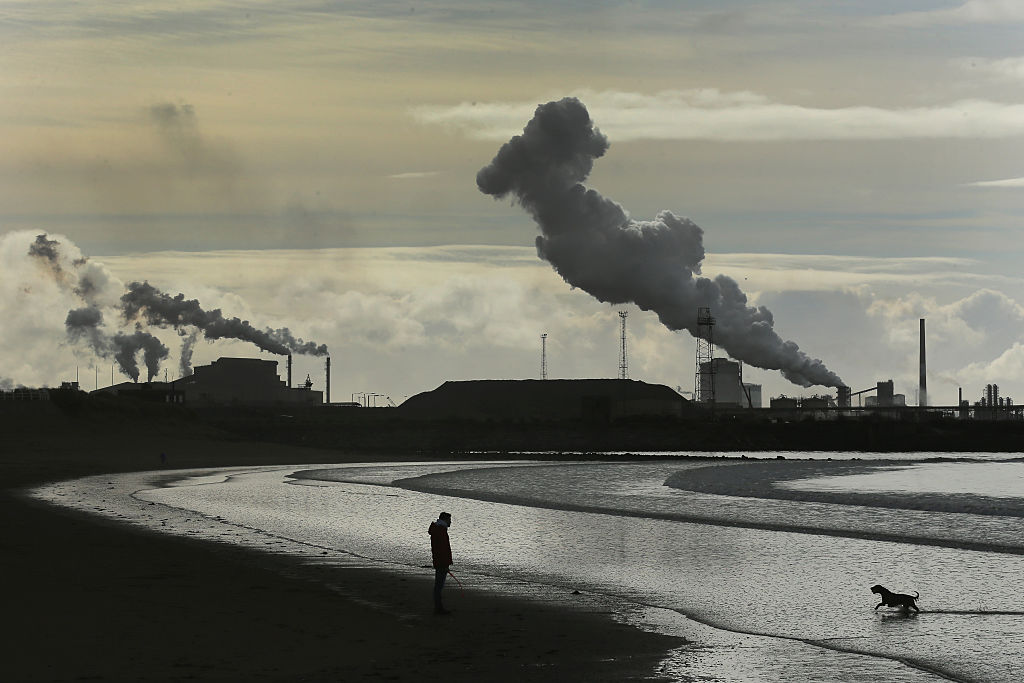Hurrah! The UK is just about to reduce its carbon emissions by a further 1.5 per cent. As for Wales, it is going to get even close to the holy grail of reaching net zero, with 15 per cent of its carbon emissions wiped off its slate in one go. True, there will be 2,800 job losses, and it won’t actually reduce global emissions – in fact, it will probably increase them. But who cares about such trifles when you have a legally-binding target of net zero to reach by 2050?
That pretty well sums up today’s announcement that Tata Steel is to close its two blast furnaces in Port Talbot, in preparation of building a new ‘green’ electric arc furnace that will open in a few years’ time. An electric arc furnace won’t really decarbonise steelmaking because it only does half the job. Steelmaking is a two-part process: first, extracting iron from iron ore to make pig iron, followed by turning the pig iron into finished steel. An electric arc furnace can help with the second part but not the first part. The new ‘green’ steelmaking works at Port Talbot will be reliant either on imported pig iron, or on scrap steel. It is, of course, a good thing to recycle steel, and this has been done for many decades. But a growing world economy can’t live on recycled steel alone.
The first part of steelmaking is the really dirty bit. To extract iron from iron ore you need a ‘reducing’ agent to combine with the oxygen in the iron ore and so remove it. In almost all the world’s steelmaking, the reducing agent used is either coking coal or gas – which creates large quantities of carbon dioxide as a by-product. That is why steelmaking is so carbon-intensive. It is possible that in future we may be able to make steel commercially using hydrogen as a reducing agent – in which case we could genuinely have steel that is zero carbon, or thereabouts. There are a couple of demonstration plants being built in Sweden and Spain to test this process. But it won’t be Port Talbot’s electric arc furnace doing the job.
The closure of Wales’s blast furnaces will take some emissions off the UK’s books, but only by transferring them onto another country, probably China’s. Looked at from a global perspective, the closure at Port Talbot will almost certainly increase emissions. Why? Because we will have to cart yet more Chinese-made steel across the world to the UK, and because Welsh electricity is less carbon-intensive than Chinese electricity – 70 per cent of which is generated by coal power stations. Then there is the small matter of 2,800 skilled jobs, the loss of which threatens to turn Port Talbot into a 1980s-style unemployment blackspot. The electric arc furnace will be able to offer employment to some existing steelworkers when it opens in a few years time, but it will never employ as many people as the blast furnaces.
The closure will also make Britain even less industrially self-sufficient – just at a time when the foreign secretary, David Cameron, is telling us that the world hasn’t been as dangerous for decades.
Such is the perversity of Britain’s net zero target. Real jobs are being sacrificed to achieve something only on paper.







Comments